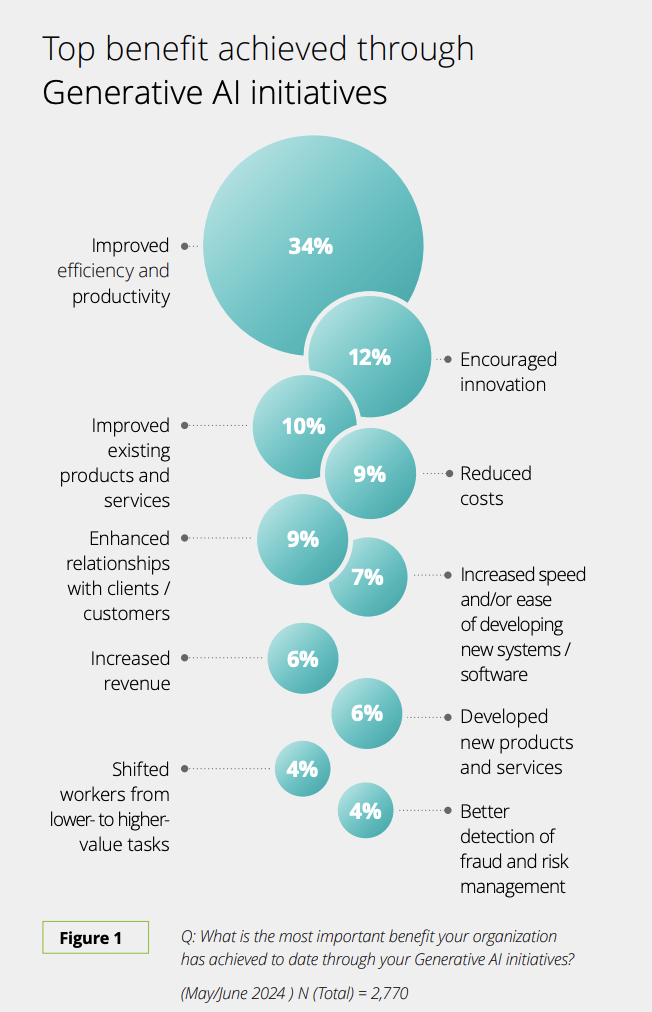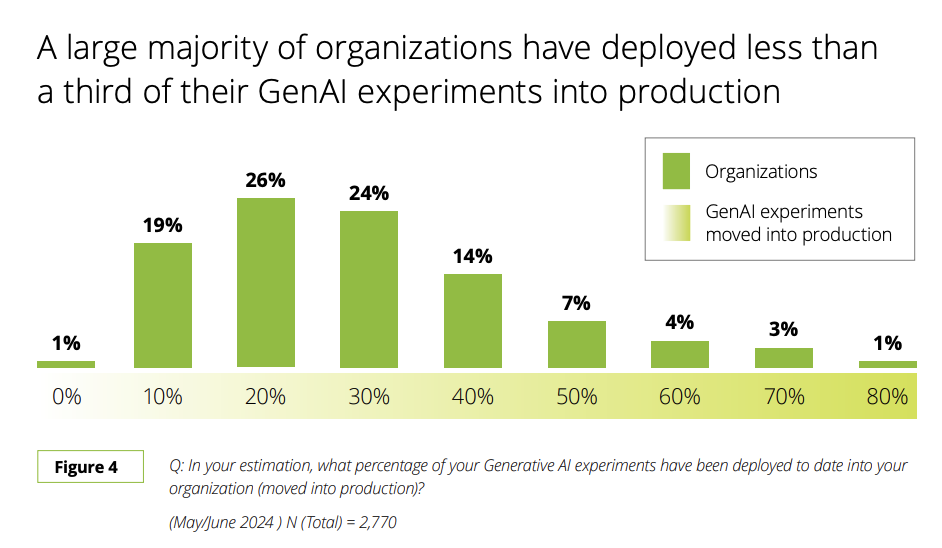
New report sees waning excitement for GenAI despite increasing investment in technology

Interest in generative AI among executives appears to be waning, according to a new report from Deloitte.
Its State of Generative AI in the Enterprise report found a decline in the excitement surrounding GenAI technology, even as 67% of organisations are increasing their investment in GenAI due to the value seen so far.
According to the survey, interest in GenAI remains "high" or "very high" among most senior executives (63%) and boards (53%). However, these numbers have declined by 11 and eight percentage points, respectively, since the first quarter of 2024.
The decline comes as need to demonstrate the value of GenAI initiatives becomes more pressing as organisations move beyond the proof-of-concept stage.
The survey found that 41% of respondents have struggled to define and measure the impact of their GenAI efforts, with only 16% regularly reporting on the value created by these initiatives.
Jim Rowan, Applied AI leader and principal at Deloitte Consulting LLP, noted the critical phase GenAI adoption has reached.
"As promising experiments and use cases begin to pay off, it's clear that we have arrived at a pivotal moment for Generative AI, balancing leaders' high expectations with challenges such as data quality, investment costs, effective measurement, and an evolving regulatory landscape," he said in a statement.
Despite these hurdles, many organisations continue to see potential in GenAI. Costi Perricos, Generative AI leader at Deloitte Global, emphasised that enthusiasm remains strong among those who have embedded the technology into critical business functions.
"We are seeing continued enthusiasm for GenAI across organisations, and leaders are deriving the most value from the technology by deeply embedding it into critical business functions and processes," Perricos said.
He added that the benefits of GenAI are extending beyond improved efficiency and cost reduction, pointing to increased innovation, improved products and services, and enhanced customer relationships.

Source: The State of Generative AI in the Enterprise: Now decides Next
However, the survey also revealed that the majority of GenAI projects are still in their early stages, with 68% of organisations reporting that they have moved 30% or fewer of their GenAI experiments into full production.

Source: The State of Generative AI in the Enterprise: Now decides Next
One of the primary obstacles identified in the report is data management.
With 75% of organisations increasing their technology investments around data management due to GenAI, it has become clear that data-related issues are a significant barrier to broader GenAI adoption.
According to the survey, 55% of organisations are avoiding certain GenAI use cases due to data deficiencies. To address these challenges, they are focusing on enhancing data security, improving data quality practices, and updating governance frameworks.
Risk management also emerged as a critical concern, with three of the top four barriers to successful GenAI deployment being risk related.
Regulatory compliance (36%), difficulty in managing risks (30%), and the lack of a governance model (29%) were among the top concerns cited by respondents.
Organisations are increasingly focusing on building trust and ensuring responsible use of GenAI by establishing governance frameworks (51%), monitoring regulatory requirements (49%), and conducting internal audits (43%).
Deloitte's latest "State of Generative AI in the Enterprise" report surveyed of 2,770 director- to C-suite-level respondents across 14 countries.